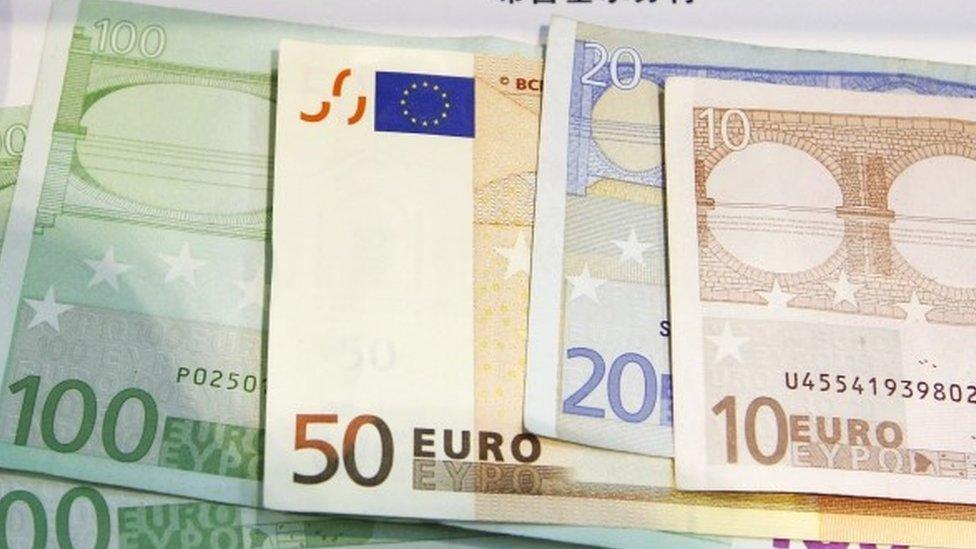One-third of eurozone bonds issued by states lose money
- Published

A third of bonds from eurozone states are losing investors money, the Bank for International Settlements says.
By the end of November, the stock of eurozone government bonds that carried negative yields had risen to more than €1.9 trillion (£1.36tn; $2.05tn).
The bond prices are so high that investors will not get their money back on maturity, and the interest rates are not high enough to make up for it.
The BIS, external blames the European Central Bank's recent comments.
It said that other major government bond markets, including Japan and the UK, had not gone down this path.
Some economists believe quantitative easing (QE) by the European Central Bank (ECB), a programme by which it purchases bonds in secondary markets, has triggered the move by so many euro area bonds into negative territory.
The BIS said in its latest quarterly review that speeches by ECB officials from late October onwards were interpreted "as signals for an expansion in monetary accommodation in early December" and that subsequently "yields continued to fall".
In early December, ECB chairman Mario Draghi did in fact extend the bank's monthly €60bn stimulus programme by six months to March 2017.
He said the QE programme was working, but that an extension was needed to tackle prolonged low inflation.
- Published24 November 2015
![cash]#](https://ichef.bbci.co.uk/ace/standard/976/cpsprodpb/11F3D/production/_86833537_86833535.jpg)
- Published3 December 2015

- Published1 November 2022

- Published3 December 2015
